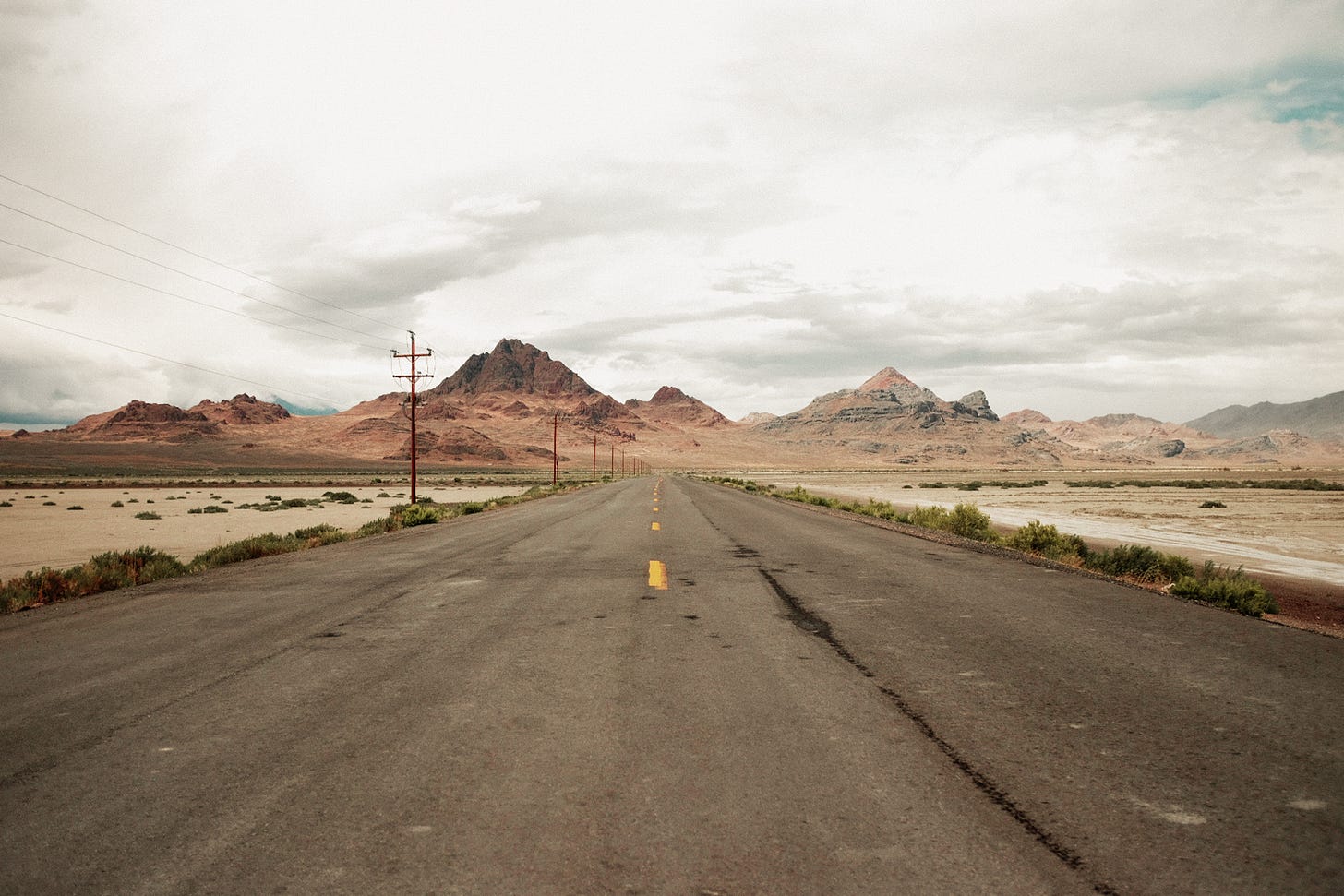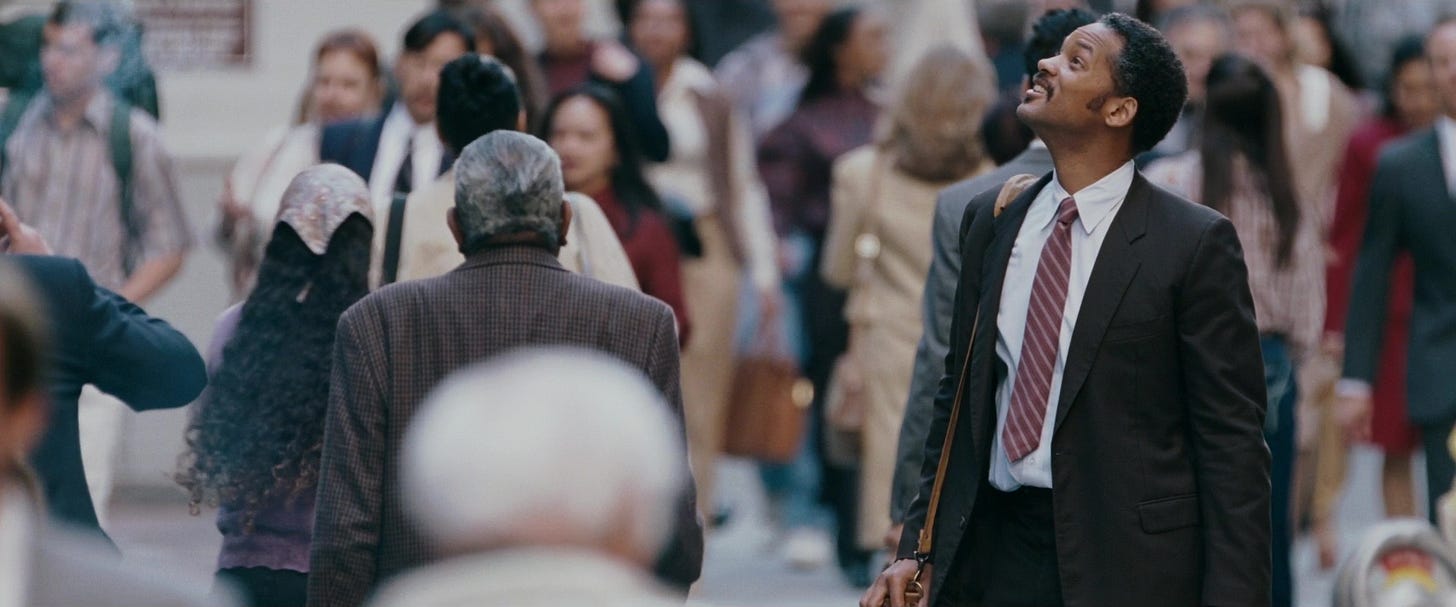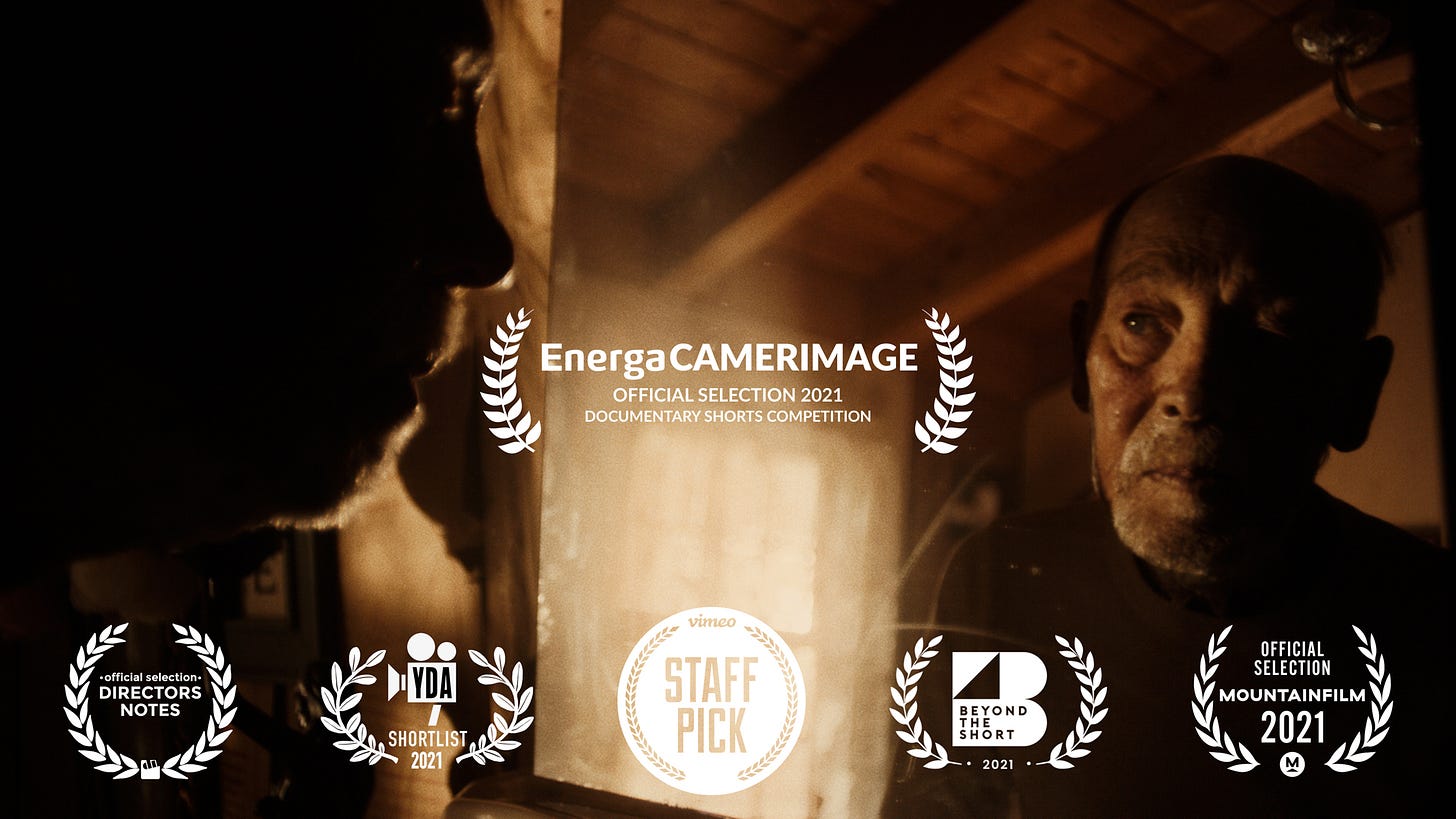No. 4 - Seeking Representation
And the most important question... "Why?"
Welcome back! I wasn’t really sure if this new Substack project would pan out as I’d hoped, but I’m happy to share that we’re just a few subscribers away from 50. And while I realize 50 is a small number in the grand scheme of things, the very idea that 50 people would want to join me on this venture into the unknown world of online self-publishing is pretty humbling. So whether you’re currently a subscriber or just considering it, thanks for stopping by.
A couple of weeks back, I received an email from one of Ground(ed) Glass’s readers with some questions about artist representation—agents, production company rosters, and the like. When I read the email (quoted below), I was thrilled because it was exactly the kind of interaction that motivated me to start Ground(ed) Glass. The following excerpt is shared with full permission from the inquirer.
“Hi Brandon, not sure if you remember me, but I was a shuttle PA for that **** job a few months back… Just reaching out to let you know that your second Substack was an enjoyable read! … I would like to mention that this Substack of yours is something I’ve always looked for but never found. It is helpful. Even the sentence about sending follow-up emails, getting coffee, or letting an EP know you like their work was helpful.
As a director seeking representation, some topics I’d like to read more about would be how to get representation and what it’s like to cast these nets & build/maintain relationships with brands and EPs. There’s a lot more I’d love to know more about, but I’ll leave it at that for now. Thanks for doing what you do & for the honesty.”
I definitely remembered this person and the 4 a.m. ride to the airport we shared the morning after wrap, when he’d probably only gotten home around 9 or 10 p.m. the night before. He was great! What really stood out to me from his email, though, was that last part.
“Seeking Representation”
The topic of “seeking representation” as an artist—specifically as a director—is one I’ve encountered, considered, and wrestled with time and time again throughout my career. It’s something that most artists in the commercial, branded, and narrative spaces deal with at some point, and I’m sure each one has a different take on it. From this point forward, I can only speak on the topic based on the experiences and situations I’ve found myself in.
Much like the person who sent me the email above, I too was once a PA trying to make a living off $150-$250/day gigs while pursuing directorial attempts in the short doc space on the side, both on my own and with friends. To put it politely, I was an overzealous 24-year-old who spent a too much free time on Instagram, exploring the work of commercial and narrative directors, cinematographers, and photographers alike. When I visited their profiles, they always had production companies, reps, agencies, etc., listed in their bios… And at some point, my mind began to equate that to someone’s success.
In a way, I think my desire to be represented or “on a roster” at a production company tied back to that human need for belonging—the feeling of having a crew that backs you up, nurtures you creatively, and pushes you forward. Alongside this, there’s also a certain amount of legitimacy, whether earned or not, when a director or photographer is repped. It signals to potential clients and agencies that a company has put its belief behind that person’s vision.
So, of course, the second a buddy of mine and I got our first Vimeo Staff Pick, I started emailing some of these production companies. In hindsight, I now realize how desperate that must’ve looked. But I’ll chalk it up to hungry naivety before I cringe to death.

To my surprise (and absolutely no one else’s), I didn’t hear back from 95% of the people I reached out to. And the one production company that did invite me in, probably did so as a courtesy. But through this process of outreach and silence, I began to have really frank conversations with people I met along the way—ep’s, producers, other artists, programmers, sales agents… and, most importantly, myself.
What I had to learn—and what ultimately became the throughline in many of these conversations—was commercial viability. I needed to understand that, at the end of the day, production companies are indeed companies. While everyone loves a good passion project, passion projects cost money; they don’t make it. Production companies employ people with families, provide medical and retirement benefits—in other words, they have to make money. So the talent they invest in and “add to a roster” must demonstrate commercial viability. Whether a director has a spec project that went viral, a short film that won a festival, or fills some commercial niche—everything comes down to whether a production company and its sales agents can sell it. And creating commercial viability takes time and refinement. I hadn’t truly taken the time to refine yet; I wasn’t commercially viable at that point.
These conversations continued over the next few years, growing deeper and developing into ongoing discourse—both internally and with others—as I kept building. As I kept refining. As I kept maturing. Any outreach I continued with production companies became more about building a relationship and sharing new work than simply seeking representation.
Whenever my friends and I got tossed into the game, we made the most of our time on the field. That is to say, we put entire budgets on screen, did spec work, spent years of savings, sacrificed, messed up, and pushed as much as we could with what we had in order to create work we genuinely cared about and could be proud of. We challenged ourselves and one another. In the process, all of that work and sacrifice has proven to be invaluable to the continued building of relationships with production companies, EP’s, agencies, etc.
It’s been amazing to see what the linear relationship between tenacity and opportunity looks like in a career that has, so far, been anything but linear. The most difficult and intimidating part of doing anything creative on your own—especially as a freelance professional who needs to make a living through their art—is the unknown. Not knowing when the next job will come in. Not knowing if you’ll get paid on time for the job you’ve already done. Not knowing if sharing a new project will end up working to your benefit or detriment. You have to navigate these uncertainties yourself and that’s scary.
There are known knowns; there are things we know we know. We also know there are known unknowns; that is to say, we know there are some things we do not know. But there are also unknown unknowns—the ones we don’t know we don’t know.
This quote above may be the only useful or even remotely insightful thing Donald Rumsfeld has ever said—I learned of it in Errol Morris’s documentary about him, The Unknown Known. But regardless of its origins, it rings true for me and the approach I’ve tried to take as I move forward in my career: be confident in the things I do know, accept that there are things I don’t know, and know that there are some things I have yet to realize I don’t understand. Accepting this is why I find it so easy to forgive my younger self for being so eager.

Ask Why.
I’ve become a bit more subdued in my approach to outreach. I still do it, but the reasons are less about seeking validation and more about practicality and necessity. For instance, now that I’m regularly taking on commercial stills work, having someone to negotiate terms on things like usage and creative fees—and to put me forward for more jobs that my portfolio can now help sell me on—would be beneficial. It’s about necessity.
When it comes to seeking representation as a director, the things I’ve written about here and all the other experiences I’ve had navigating the industry as a freelancer—especially in the last two years—have led me to always first ask, “Why?” Am I looking for validation, or is there a real need for this? Have I worked with this company before? Do they seem genuinely eager to collaborate? Are they willing to support other creative pursuits and passion projects? What kind of work are they usually putting forward? What does their forecast look like? Are they consistently offering me low-budget jobs? Have they truly taken the time to get to know me?

Where I once viewed representation as a one-way street, I now see it as a deeply mutual relationship, where both the production company and the director need to be working toward something more. For me, that means taking the time to get to know one another on a personal level, letting that deeper relationship foster mutually beneficial success. Otherwise, what’s the point?
Slow Down
So, while this may be my long-winded way of trying to explain something to myself, I hope some of this insight answers—or at least sheds a bit more light on—the question this reader emailed about. My advice: slow down and focus on finding your voice as an artist through the work that keeps you up at night. Take your time and let that process unfold naturally.
I'm now at a place where I’m fortunate to be working regularly with a few different production companies. I have an international rep who puts me up for work outside North and South America and Canada—opportunities I might not be presented for otherwise. What I’ve learned, though, is that even though I am getting work through production companies as a freelance (off-roster) director and photographer, what truly matters is the work itself: cultivating relationships, making the most of my opportunities, and overdelivering whenever possible. I recognize that I’m doing what I always wanted to do, just perhaps on terms that were a bit of an “unknown unknown” to me five or six years ago. Would I still be open to the possibility of being exclusively on-roster at a production company? Absolutely—but knowing what I know now, I would approach it in a more mature and business-forward way.
Rather than asking for something, share your work and treat each project you’re truly proud of as an opportunity to start new conversations. See the value in yourself and in what you create. I can almost promise that the worst you’ll get is no response at all—and in that case, it likely wasn’t worth your time to begin with. The right opportunities will come to you when your work speaks clearly and powerfully for itself.
Peace and Love!






